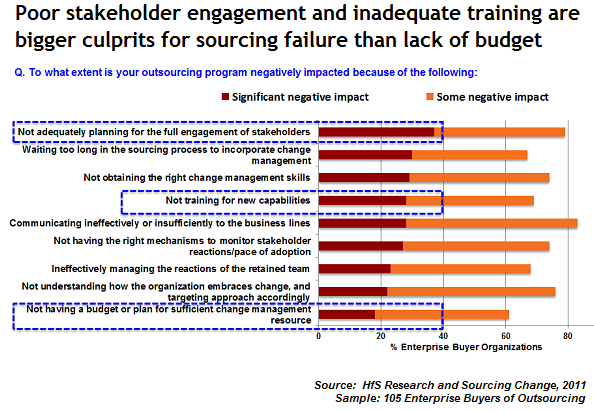 Imagine running a business where you have no accountability for cost control, achieving your stated objectives and are completely paralyzed to change anything.
Imagine running a business where you have no accountability for cost control, achieving your stated objectives and are completely paralyzed to change anything.
And when you do try and change something, half the organization refuses to even contemplate change? Welcome to government.inc. The impossible organization.
And, let’s face it, many of today’s clunky, oversized enterprises aren’t a helluva lot better.
When we look ahead ten years, the successful businesses will be a lot smaller, more agile, and much more focused. Processes that bring no competitive advantage are likely to be sourced, and consumers via a “pay per use” model. Boxes of IT hardware will likely be extinct, along with the staff who maintained them. Delivery centers that house hoards of costly staff with the sole focus on maintaining low-value work will likely be long shut-down, or absorbed into service provider organizations.
We know where the world is headed. The unknown factor is the time it will take to get there.
While we are caught up in this election furore – one thing is abundantly clear: whomever gets elected is going to have to contend with the continual paralysis and painful increments of the necessary change needed, to keep the country (and most likely most of the world) somehow functioning.
However, most of today’s enterprises do not have the luxury of paralysis.
Far too many of today’s business are dragging around these clunking, inefficient infrastructures, that often resemble the workings of government, when you get under the covers. Teams of corporate politicians lobby to maintain the status quo, raising issues about security, about political risk, about poor quality services from third parties… about anything that can prevent the one thing the company needs to embrace… CHANGE.
However, these enterprise beasts don’t all have the luxury of the government – one day their shareholders will run out of patience and demand CHANGE (gasp). This is not an eternal spiral of endless-do-nothingness – there will come a point where enterprises will have to embrace change, or simply limp away to the corporate cemetery, where many failed business are fondly remembered – or simply forgotten. We can even reel off lists of enterprises today shedding swathes of staff or lumbering on Chapter 11 life-support, desperate for something to happen to divert their seemingly inexorable descent into corporate oblivion… you know who there are!
So this drew me back to a critical piece of data we pulled together last year with Sourcing Change, where we asked 105 post-outsourcing enterprise buyers what was (really) preventing them from achieving success with their outsourcing programs:

The “Lack of Budget” excuse doesn’t wash anymore – it’s the “Lack of Executive Will” that’s the real impediment, when it comes to changing the status quo
Simply put, “lack of budget to plan for change” was least negative factor impacting enterprises’ outsourcing programs. However, poor planning to engage all the right statekolders is the most significant impediment – by a considerable margin. And coupled with this is a lack of training, poor communication, and any sort of manageable change process to ensure these outsourcing programs are working effectively.
And this is where I draw my comparisons with Washington – throwing money at a problem is never the issue – the real solution is pulling all the key stakeholders together and getting them to agree on the right way forward for the organization. Here are some tried and trusted steps to follow… if anyone really cares:
Avoid “analysis paralysis” – The financial payback times can be quite long -therefore this can delay making the decision to actually do something
Avoid stagnation – It is also much easier and “safer” to do nothing – a lack of will
Use “real” communication – Overcome the lack of trust in “Corporate” – the only real course is honesty and clarity
Agree to disagree – Consensus is important and any significant change program should encourage constructive criticism, but eventually stakeholders must make a decision and support it. If everyone has to be happy before anything is done, then nothing will get done!
Stay focused on the ultimate goals – Identify who is in which bracket, be honest and clear and support the change, but not be railroaded from the ultimate goal, which will ultimately impact people, by design and necessity
Posted in : Business Process Outsourcing (BPO), Captives and Shared Services Strategies, HfSResearch.com Homepage, IT Outsourcing / IT Services, sourcing-change, Talent in Sourcing






